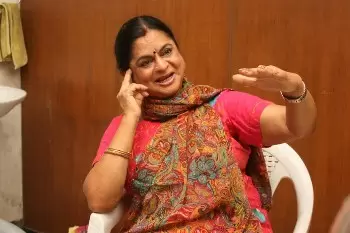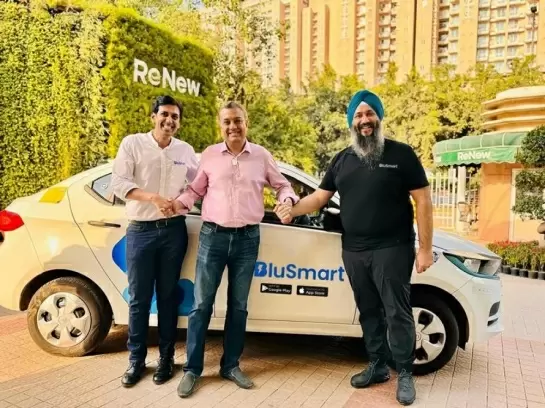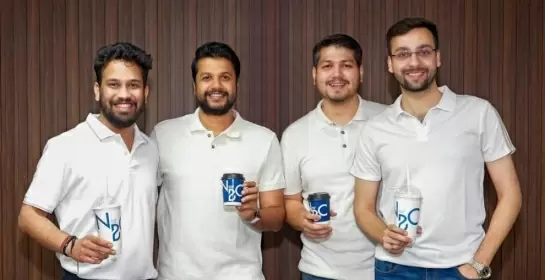‘My father (actor Gemini Ganesan) wanted to become a doctor’

06-February-2012
Vol 3 | Issue 5
Dr. Kamala Selvaraj, MD DGO PhD. is the Associate Director of the Fertility Research Center at GG Hospital in Chennai. She commissioned the First Test Tube Baby of South India in August 1990 and since then has had many achievements in the field of assisted reproduction.
In 2002, she was awarded PhD for her thesis on “Premature Ovarian Failure and its Management.”
 |
|
Baby boomer: Kamala Selvaraj gave free treatment to mothers who lost all their children in the tsunami of 2004 (Photo: Conversations)
|
She has many publications to her credit in several national and international journals as first author, and has authored chapters in textbooks on assisted reproduction.
She is also the recipient of several awards including Best Lady Doctor award (1993), Mahila Shironmani Award (1995), Rajiv Gandhi Memorial National Integration Award (1995), and SevaRatna Award.
In an exclusive interview Dr. Kamala Selvaraj shares with Marie Banu her thoughts on the stigma of childlessness and her efforts to promote motherhood.
Childlessness is still seen as a curse in India. What are your thoughts on this?
Society still considers a childless woman as barren and unlucky. They don’t pause to think that it takes two hands to clap and that the man could be at fault as well. Likewise, a man always needs to be worked up before we pay attention to the women.
Earlier in my practice, some men who had no sperm production used to consult with two wives, often they would be sisters. So, I used to think how lack of examination of the man has destroyed the lives of two women.
Nowadays, although the awareness level has increased and people know that the man can also be at fault, the taboo is still palpable. Women who do not have children are not allowed to participate in auspicious domestic functions and are considered asa bad omen.
I advise women who undergo fertility treatment to tell their relatives that they are planning to have a child later, and to secretly pursue their treatment. I continue to tell them not to show their weakness and to be mentally strong.
Infertility treatment nearly 25 years ago was not heard of. But, today you have people all over the world consulting you for treatment. Is this due to increase in awareness that infertility can be treated or is it due to the fact that there is a rise in infertility worldwide?
Every woman wants to be independent. For this, she needs to be educated and have a secure job. When she reaches this level she is already 28 to 30 years of age.
It takes a while for her to find a suitable and professionally well settled partner. They plan their family a year later as they need time to adjust to each other’s lifestyle. The highest fertility period for a woman is between 20 to 28 years of age and they easily cross that!
Infertility rates in the last two years have climbed up owing to awareness and detection, as well as, lifestyle and environmental factors. Stress has been a major contributor considering that couples are working more towards luxury than actually spending quality time with each other.
Age of both partners is also important where higher the age, more the chances of babies with down’s syndrome and other anomalies.
What is your advice for such couples?
One who is rich is content with what he has; but one who is poor wants more and more. There is no end for greed!
If couples cannot prioritize or balance their career versus need for children, then we are certainly going to be handling more and more difficult cases in the future.
I always advise couples to plan atleast one child before thirty or atleast by 35 years of age. If they intend late child bearing then they need to be adequately prepared physically and mentally, and always plan conception with the help of an infertologist.
You have brought happiness in the lives of many mothers. While the rich can afford the ART (Assisted Reproductive Techniques), what is the solution to those who can’t afford it?
I still feel India has better treatment options at a reasonable price in comparison to the rest of the world. Couples should understand that in a private set up, it is only imperative that a lot goes into maintenance and care to give good results.
We cater to those that can afford nominal charges, and we also help those patients who fail repeatedly by giving them free treatment. Every specialist can offer free treatment according to their capacity and power.
By and large, the government should avail facilities and make it possible for better reach of ART in government colleges and hospitals. First of all, the stigma attached to infertility should be abolished and adoption should be advised to those who have been proved that they can never bear a child.
This would keep unscrupulous practice at bay and also help adoption of children that need homes.
After the tsunami, lot of women who had lost their children opted for ART. Can you share your experience?
We provided free treatment to all the tsunami patients. Each of the couples had not lost just one, but two and sometimes tragically three.I felt very bad! My mother used to say that when a parent is alive, they should never lose their child. I can’t imagine how these patients could still manage to smile at me and say that they were happy to see me. I could not smile back at them!
These women had been sterilized and one of them was pre-menopausal. I offered free treatment to all of them for test tube babies. It was only after they became pregnant I charged them a nominal amount towards room rent charges.
They had lost all their children, but I could give them only one!
Born to a leading yesteryear actor Gemini Ganesan, what inspired you to choose the medical profession?
After I completed my schooling, my father asked me if I wanted to get married or pursue higher studies, I said that I wanted to study. In those days, he said that there were only two dignified professions for women—teaching and medicine. I hated teaching and hence chose medicine.
Actually, my father had wanted to do medicine. It was for this reason he married my mother who was from a well-to-do family as her father promised to send him abroad after marriage to study medicine. Soon after his wedding, my grandfather expired and therefore he had to stay back to take care of the family. His lifestyle thus changed, maybe for the better.
As his ambition was not fulfilled, he wanted us to pursue medicine. Now, we are nine doctors in the family— three of his daughters (that includes me); my husband; my daughter; my son; my brother-in-law; my nephew; and my niece. I struggled a lot to come to this level. Our future generation now has everything in a golden plate.
You appear to be a very cheerful person. How do you cope with stress?
It is spontaneous and natural. Everybody is going through stress and smile costs me nothing! When I am making someone pleasant, I feel happy.
My elder sister Narayani once narrated an incident to me. She was traveling in a car with my father when she was a child and saw him waving his hand vigorously to a man riding a bicycle.
She observed that the man did not reciprocate and hence asked my father why he did so. He replied to her: ‘I thought he waved and so waved back. If he did not reciprocate, it does not matter. If only he had waved and I had not reciprocated, he would have felt bad.’
I always remember my father who was down to earth. He used to be cheerful all the time and made the place around him lively. – Courtesy: Conversations














